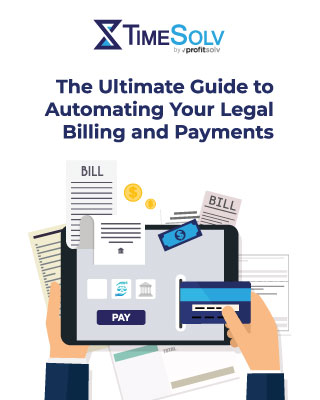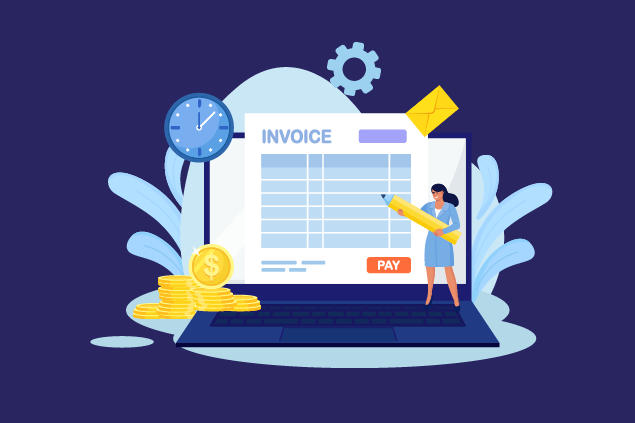Legal professionals have important fiduciary responsibilities to their clients. Upholding those responsibilities—particularly when it comes to payment reconciliation—is one of the best ways to show your clients that you’re committed to protecting their best interests (and to protect your law firm from lawsuits and compliance violations).
As an attorney, you have an ethical and legal obligation to:
- Maintain accurate financial records
- Ensure that all payments to and from your law firm are accounted for
- Identify and address the loss or embezzlement of client funds
- Comply with professional and industry regulations about payments and record-keeping
Still, if you’ve ever attempted payment reconciliation with traditional methods, you know that it’s time-consuming and labor-intensive, especially when you’re dealing with a large volume of transactions. Amidst storing and tracking down all of the necessary documentation, mistakes can occur.
And even simple mishaps (like writing the wrong payment amount, failing to follow up with a client who didn’t pay their invoice, or misplacing a check) can easily lead to discrepancies in your law firm’s account ledger.
Fortunately, online payment processing eliminates these risks to simplify payment reconciliation and save you time.
What is payment reconciliation?
Payment reconciliation is a key process that helps to ensure the accuracy of a business’s financial records. It involves reviewing all incoming and outgoing payments to ensure that they’ve been fully processed and are accurately documented in the business’s accounting system.
But for law firms, this process can be more complex than for other types of businesses.
Payment reconciliation for law firms
American Bar Association (ABA) rules for financial record keeping require attorneys to take special measures when it comes to documenting certain types of fees and expenses, like court costs, witness fees, and credit card fees. Some law firms also need to reconcile payments between multiple trusts or operating accounts—and attorneys who rely heavily on paper payment methods tend to find the process particularly tedious.
Fortunately, electronic payment processing solutions alleviate many of the burdens of payment reconciliation and help you stay on top of your firm’s finances with ease.
How online payments improve payment reconciliation every step of the way
When choosing a payment processing solution for your law firm, it’s important to look for a provider that offers features like document management, automatic payment posting, secure online payments, and easy-to-use reporting tools.
These features can go beyond streamlining your payment reconciliation process and make it easier to stay on top of your firm’s finances more holistically and tangibly.
The Ultimate Guide to Automating Your Legal Billing and Payments
To stay competitive in today’s legal landscape, law firms must embrace the power of technology, especially when it comes to billing and payments.
The best way to improve your law firm’s cash flow while also increasing client convenience is 'Automation'.
Download our free guide to improve your legal billing and payment process today!
Organizing and collecting documentation
Whenever your firm receives or makes a payment, a variety of documentation may be involved, including:
- Invoices
- Timesheets
- Receipts
- Engagement letters
- Bills of costs
- Trust account records
- Fee agreements
- Settlement agreements
- Judgments
- Liens
- Demand letters
- Any relevant documents that demonstrate your client’s or firm’s financial liability
It’s important to keep these handy while reconciling payments, but traditional paper payments and document storage methods can make it a challenge. (What attorney or legal professional truly has the time or desire to dig into a file cabinet and source documentation, after all?)
When you opt to accept online payments instead, many of these documents are automatically generated and stored electronically for ease of access.
Automatic payment posting
Many legal online payment solutions offer automatic payment posting. When a client makes a payment online, the information is automatically entered into your accounting system.
This capability improves your payment reconciliation processes because of it:
- Eliminates the need to make a manual entry
- Reduces errors that occur during manual data entry
- Ensure that all payments are accurately recorded
- Saves attorneys valuable time to focus on serving clients
Trust account compliance
Built-in support for trust accounting is one of many reasons that online payments have become more popular in the legal sector in recent years, and many legal-specific solutions offer unique benefits that can improve your overall payment practices.
As such, reconciling payments becomes easier—and it safeguards against compliance violations.
Take TimeSolvPay, for example. TimeSolvPay automatically ensures that fees are taken from your law firm’s operating account instead of your client’s funds. This can save you stress and effort later on when it’s time for payment reconciliation.
Improved convenience
By eliminating the need to process paper checks or cash, online payments save attorneys time and hassle—and that convenience translates to payment reconciliation, too. With less manual effort and increased speed, online payments can help ensure that payments are reconciled promptly, reducing the likelihood of delayed or missed payments.
Improved accuracy
Online payments can also improve the accuracy of your payment reconciliation process. When clients make payments online, the information is automatically entered into your accounting system, helping to ensure that all payments are recorded in the proper location and that there are no discrepancies. This eliminates the need for manual data entry and analysis, which many attorneys tend to agree is one of the least enjoyable aspects of payment reconciliation.
Increased security
With cyber threats increasingly common among law firms, the security of your client’s payment information is paramount.
With the right legal payment processor, though, you can reduce the risks to sensitive data while building trust with your clients. Online payments offer several security features that can help protect your client’s money, such as encryption and fraud protection.
This makes online payments more secure than traditional methods, such as checks and cash. And, as a result, the payment reconciliation process leaves clients less vulnerable to theft or identity fraud.
Simplify payment reconciliation with TimeSolvPay
The right tools can help streamline all aspects of running your law firm. If you’re looking for an easier and more efficient way to reconcile payments, TimeSolvPay is here to help.
Discover how our designed-for-legal tools can improve your payment practices and keep your law firm’s financial records accurate and up-to-date at all times. In addition to helping with payment reconciliation, online payment processing can also help with other financial tasks, such as budgeting and reporting.
Learn more about the benefits of TimeSolv with a free trial.
The Ultimate Guide to Automating Your Legal Billing and Payments
To stay competitive in today’s legal landscape, law firms must embrace the power of technology, especially when it comes to billing and payments.
The best way to improve your law firm’s cash flow while also increasing client convenience is 'Automation'.
Download our free guide to improve your legal billing and payment process today!


















